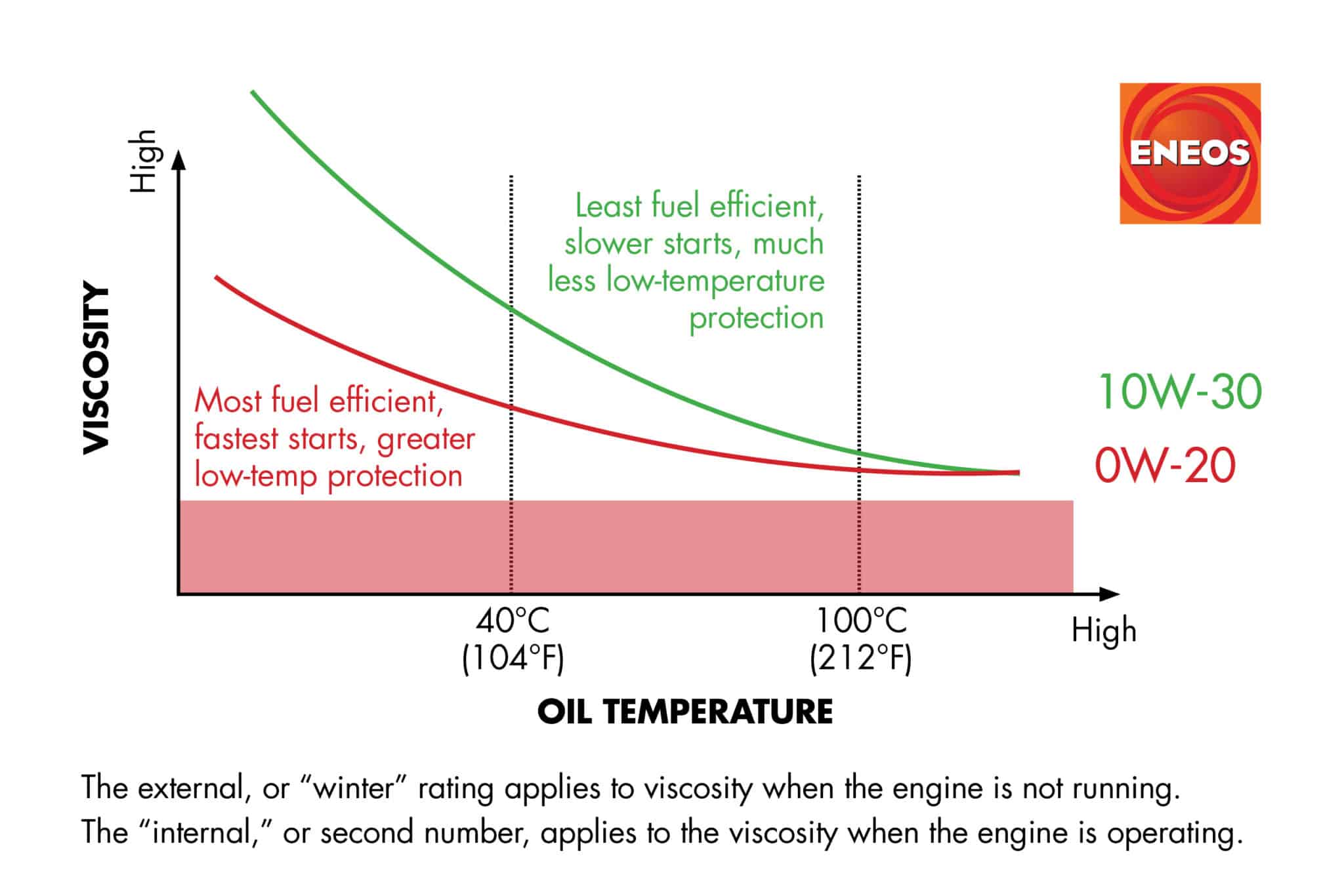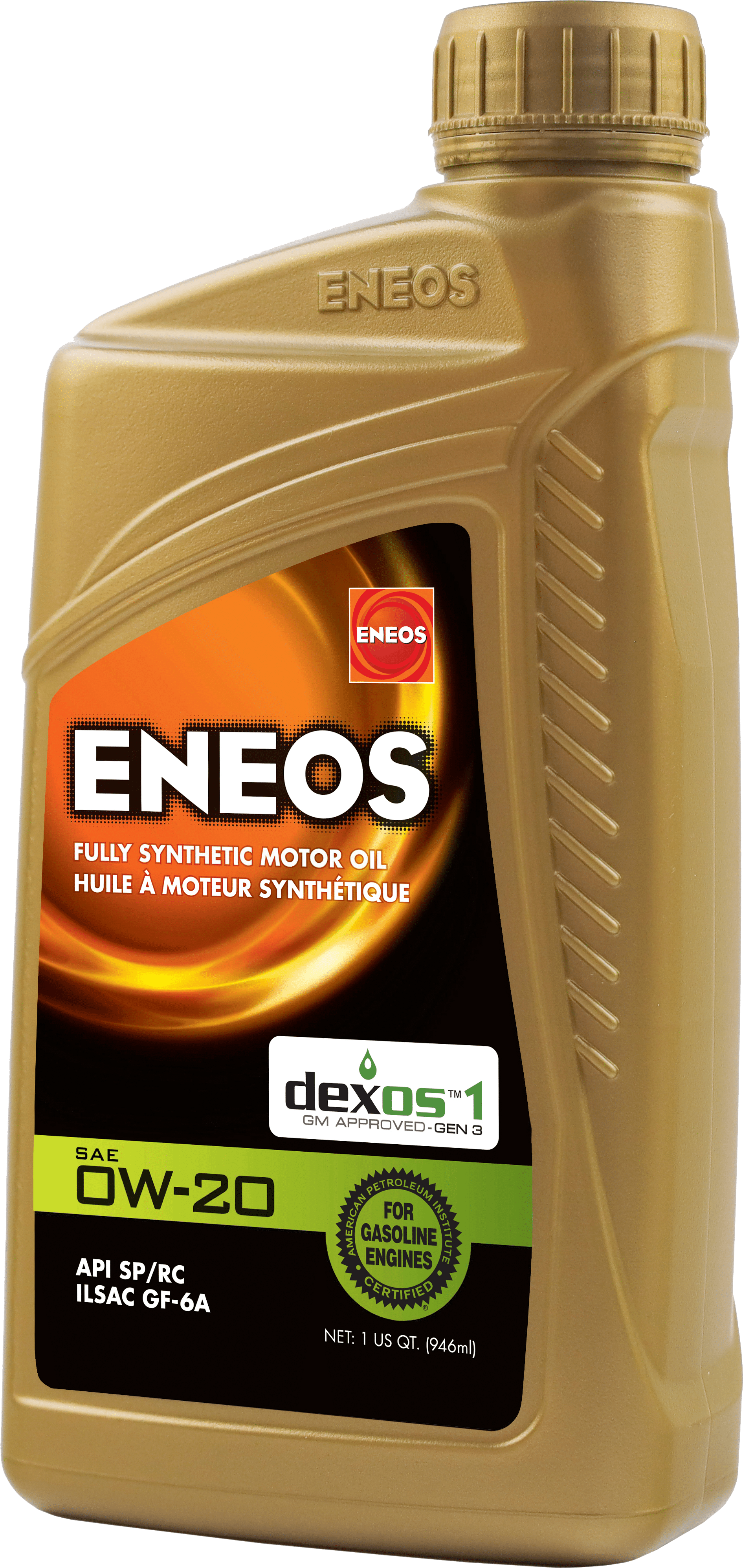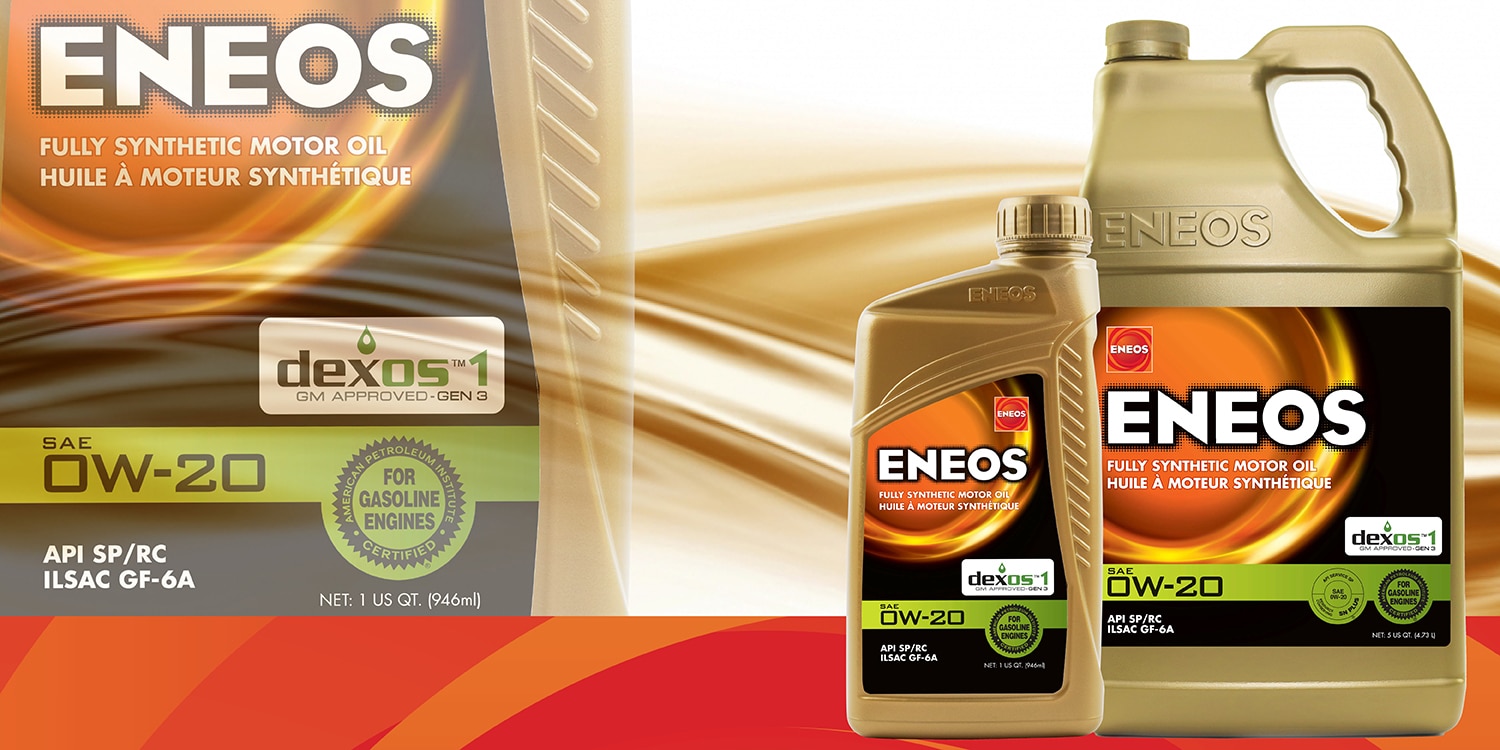Why recommend low viscosity 0W-20 synthetic oil?
Lower viscosity oils like ENEOS 0W-20 have clear benefits.
Low viscosity oil, such as 0W-20 synthetic oil, is becoming increasingly popular among vehicle manufacturers. In this post, we will explore the reasons why low viscosity oil is the best choice for automotive use, and how ENEOS fully synthetic 0W-20 motor oil can help keep engines running smoothly and efficiently.
0W-20 synthetic oil is thinner and more fluid than higher weight motor oil, which means that it can flow more easily through a vehicle’s engine. This allows for better lubrication and reduces friction between moving parts, which can help prolong an engine’s life. In addition, low viscosity oil can improve fuel efficiency by reducing the amount of energy needed to pump the oil through an engine, which can result in better gas mileage.
What does the weight rating mean?
In a viscosity rating, the “W” stands for “winter,” as in cold weather. This rating refers to the external temperature in which the vehicle is operating. When a vehicle starts, the oil is at the outside temperature, and so when the vehicle starts, the closer its “W” rating is to zero, the easier the fluid will circulate when it is cold outside, making it much easier to start a vehicle when it is cold.

That said, lower weight rated oils are still effective in warmer climates because they circulate through the engine more quickly, allowing for maximum protection for the engine as quickly as possible. In fact, ENEOS fully synthetic 0W-20 motor oil is particularly well-suited for use in extreme temperatures, as it is designed to maintain excellent viscosity even in extreme cold and hot weather. This means that engines will have optimal lubrication, whether used in the sweltering heat of summer or the frigid cold of winter.
Viscosity Index
Oils like ENEOS 0W-20 also tend to have a higher Viscosity Index (VI), providing more stability and consistency throughout all temperatures of operation. This is true not just because of the lower viscosity of the oil, but also because of the Viscosity Modifiers (VMs) ENEOS adds in just the right balance to protect engine components.
ENEOS 0W-20 Synthetic Oil
ENEOS fully synthetic 0W-20 motor oil is an excellent example of low viscosity oil, as it is designed to provide superior performance and protection. Using our OE expertise, this advanced motor oil is made using a unique blend of high-quality, synthetic base oils and advanced additives (including VMs), which work together to provide its outstanding protection and performance. Its low viscosity formula means that it can flow more easily, providing better lubrication and reducing friction between moving parts.
In addition, ENEOS fully synthetic 0W-20 motor oil can help reduce engine wear and tear. Its advanced formula provides superior protection against friction, which can cause damage to engines over time. By using this oil, your customers can help prolong the life of their engines and reduce the need for costly repairs.
Environmental Benefits
Finally, low viscosity oil can help reduce emissions and your customers’ carbon footprint. Lower viscosity oils have been one of the responses by Japanese OEMs to increasingly strict environmental goals by the Japanese government. By improving fuel efficiency and reducing friction, low viscosity oil can help reduce the amount of greenhouse gases that are emitted by vehicles. This can help with environmental responsibilty and reduce our impact on the planet.
In conclusion, low viscosity oil is an excellent choice for vehicle owners who want to improve the performance and longevity of their engine, while also reducing their impact on the environment. ENEOS fully synthetic 0W-20 motor oil is a great example of low viscosity oil that is designed to provide outstanding protection and performance. Its low viscosity formula allows for better lubrication and reduces friction between moving parts, which can help prolong the life of engines.



